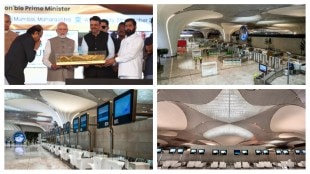Over the past few years, funding for climate-tech has remained a small fraction of overall startup investments. Moreover, most of this funding has been directed toward early-stage companies, creating a gap in growth capital for startups looking to scale.
Less than 3% of startups have been able to reach Series B or beyond funding levels in India’s climate tech ecosystem, according to a report by IIMA Ventures and Japan’s MUFG Bank released last year.
“There is a gap in growth capital for deeptech startups, while domestic money is also not as available. We are hoping that the new fund of fund that is being set up by the
government will propel the next cycle of deeptech funding,” said Anjali Bansal, founding partner, Avaana Capital.
Deeptech is a term used for advanced technologies rooted in scientific innovation, such as artificial intelligence, robotics, biotechnology and clean energy.
Avaana Capital closed a $135-million Avaana Climate and Sustainability Fund late last year and has so far made about 14 investments. Their portfolio companies include Eeki Foods, which grows vegetables and fruits in its hydroponics-based growing chambers; Kazam, an EV charging startup; Aerem, which helps small businesses install rooftop solar solutions; and Dharaksha Ecosolutions, which uses mycelium-based technology to create biodegradable materials, among others.
“These startups have a longer gestation, which requires a more understanding capital,” Bansal said in an interaction with FE. “There is less series B and series C capital in the country right now, but a lot of our companies have raised money from large-scale generalist venture capitalists. If a company is doing well, it will raise money, climate or otherwise,” she added.
Bansal is bullish on climate-focused startups across the board, including solutions in energy, mobility, industrial decarbonisation, supply-chain, circular economy, agriculture and food systems.
Some of these companies are a part of the 11 key sectors chosen for a competition during this year’s Startup Mahakumbh, aimed at providing a boost in the form of capital and resources.
Bansal believes that frugal technology will propel the transition to a fundamentally lower-carbon growth path for not just the Indian economy but also for the global south. “We look for whether it’s product innovation or process innovation, and how cost-effective is it. Sustainability is only sustainable if it is commercially sustainable. So, it has to be effective, commercially viable and scalable,” she added.
While investor interest in climate-focused startups is on the rise, the question is still around the viability of their business models. The challenge with deeptech or manufacturing startups is that the gestation periods are longer, besides the time taken to adopt that technology and product.









